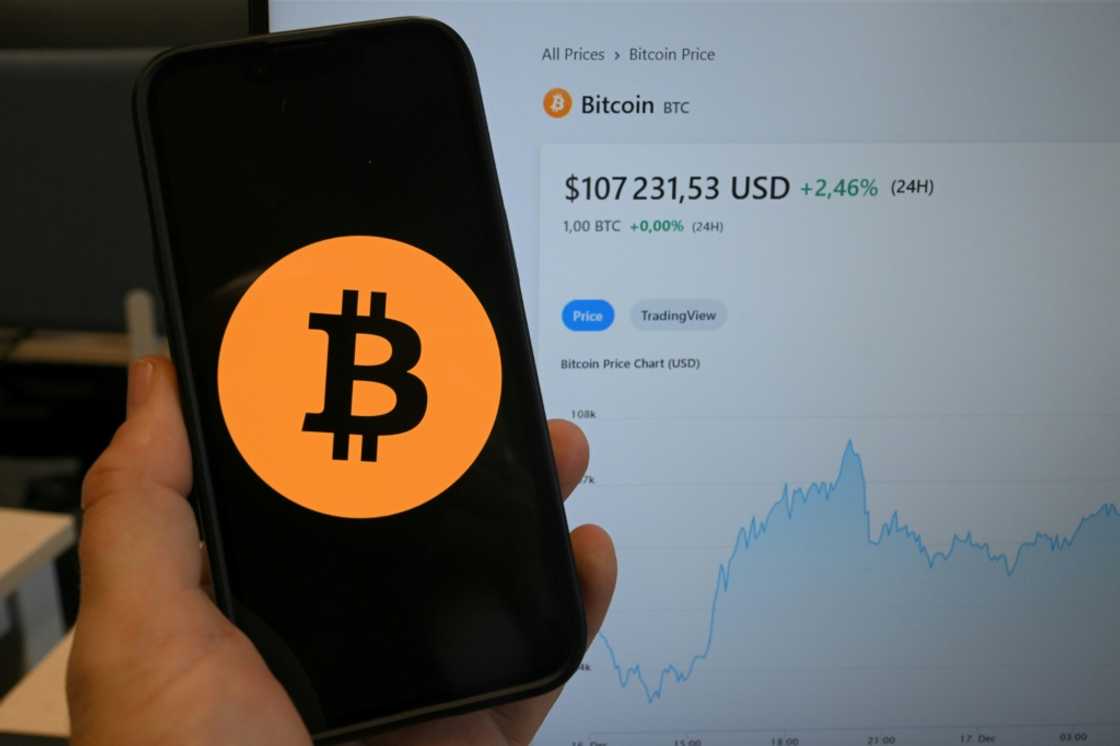Political support leading to increasing fallout for crypto

Source: AFP
Support for cryptocurrencies from US President Donald Trump or Argentine leader Javier Milei has seen investors lose billions of dollars and is damaging a sector struggling for credibility, researchers told AFP.
"The entire crypto industry is being tarnished," said Claire Balva, strategy director for fintech company Deblock.
Argentine prosecutors are reportedly examining whether Milei engaged in fraud or criminal association, or was in breach of his duties, when he praised the $LIBRA cryptocurrency on social media in February.
The token's value soared from just a few cents to almost $5 and then crashed. Milei deleted his blessing hours later.
He denies all allegations made against him.
"I did not promote it," Milei told broadcaster TN in February, adding it "is a problem between private parties because the State does not play a role here".
"I acted in good faith," he said.
The price collapsed after a handful of early investors decided to sell at a huge profit, causing colossal losses for the majority of those who purchased $LIBRA.
It also dragged down prices of other cryptocurrencies, including bitcoin.
Hayden Davis, who helped launch $LIBRA, said he had been inspired by the initial success of Trump's memecoin, $TRUMP, that marked the president's inauguration.
Having reportedly made Trump at least $350 million, according to the Financial Times, about 810,000 buyers went on to lose more than $2 billion combined, stated crypto data group Chainalysis.
A memecoin is a cryptocurrency that rides on the popularity of a viral personality or phenomenon on the internet and is often seen as a purely speculative asset.
Relying on trust
Once a fierce critic of cryptocurrencies, Trump has become a fervent defender.
He is offering multiple products linked to digital currencies, notably through his World Liberty Financial exchange, increasing accusations of a conflict of interest.
On paper, his support for crypto projects could boost the sector's legitimacy.
"But at the same time, it can backfire," said Larisa Yarovaya, director of the Centre for Digital Finance at Southampton Business School.
"Any conflicts that will emerge from it... any hackers, speculative attacks, any problems in relation to these specific coins or these specific projects" can prove counterproductive, she told AFP.
There is scepticism also over the launch in February of the memecoin $CAR by the Central African Republic.
"The domain name had been reserved only a few days before" launch, noted Balva, which "shows that there was too little preparation".
The Central African Republic was the second country to adopt bitcoin as legal tender, after El Salvador in 2021, which has since reversed course owing to a lack of local popularity.
A precursor to other cryptocurrencies, bitcoin was launched in 2008 as a way to free transactions from traditional financial institutions, notably banks.
Cryptocurrencies are based on blockchain technology, which publicly records transactions between people holding and exchanging them.
In the absence of a centralised authority, the system relies on "trust" in the people "who are endorsing these products", said Maximilian Brichta, a doctoral student of communication at the University of Southern California.
Rigged game
Many traders will use automated programmes to buy a new token as early as possible in the hope of reselling it for maximum profit.
Milei defended himself by likening losses endured by buyers of $LIBRA to someone entering a casino and knowing they may not win.
However with crypto, it is argued by some that the "game" is rigged from the outset.
To avoid price manipulation, "when launching a cryptocurrency, best practice dictates that the first investors... hold a very small share of the offering" and are prevented from selling for "several years", said Balva.
Except that at the launch of $LIBRA, "more than 80 percent" of the available tokens were in the hands of "a handful of large holders (who) controlled all the liquidity and could liquidate it all at any time", she added.
According to Balva, this was "either monumental recklessness or outright fraud".
Source: AFP




